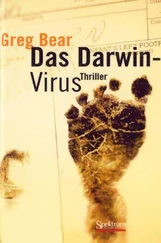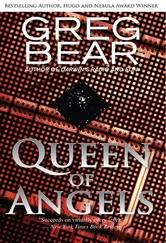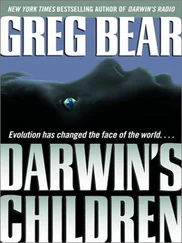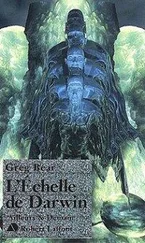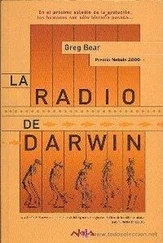He glanced back at the figures a few hundred steps behind. Then the man \ooked at the crags and peaks ahead, like so many tumbled flints. He was lost. He had forgotten the way into the valley.
The woman said little now. The face he had once looked upon with so much devotion was hidden by her mask.
The man was filled with such bitterness. This high, the wet snow soaked through his thin shoes with their grass pads. The chill worked up his calves to his knees and made them ache. The wind cut through his skins, even with the fur turned inside, and sapped his strength, shortened his breath.
The woman plodded on. He knew he might escape if he abandoned her. The prospect made his anger darken. He hated the snow, the shamans, the mountains; he hated himself. He could not bring himself to hate the woman. She had suffered the blood on her thighs, the loss, and hidden it from him so as not to bring shame; she had daubed her face with mud to hide the marks, and then, when she could not hide, she had tried to save him by offering herself to the Great Mother, carved into the grass hillside of the valley. But the Great Mother had refused her, and she had come back to him, moaning and mewing. She could not kill herself.
His own face showed the marks. That puzzled and angered him.
The shamans and sisters of the Great Mother, of the Goat Mother, of the Grass Mother, the Snow Woman, Leopard the Loud Killer, Chancre the Soft Killer, Rain the Weeping Father, had all gathered and made their decision during the cooling times, taking painful weeks while the others — the others who had the marks — stayed in their huts.
The man had decided to run. He could not convince himself to trust the shamans and the sisters.
As they fled, they had heard the cries. The shamans and sisters had begun to kill the mothers and the fathers with the marks.
Everyone knew how the flatfaces were brought forth by the people. The women might hide, their men might hide, but all knew. Those who would bear flatface children could only make things worse.
Only the sisters of the gods and goddesses bred true, never bred flatfaces, because they trained the young men of the tribe. They had many men.
He should have let the shamans take his wife as a sister, let her train the boys, too, but she had wanted only him.
The man hated the mountains, the snow, the running. He plodded on, roughly grabbed the woman’s arm, pushed her around a rock so they could find a place to hide. He was not watching closely. He was too full of this new truth, that the mothers and fathers of the sky and the ghost world around them were all blind or just lies.
He was alone, his woman was alone, no tribe, no people, no helpers. Not even Long Hairs and Wet Eyes, the most frightening of the dead visitors, the most harmful, cared about them. He was beginning to think none of the dead visitors were real.
The three men surprised him. He did not see them until they came from a cleft in the mountain and thrust their sticks at his woman. He knew them but no longer belonged to them. One had been a brother, another a Wolf Father. They were none of these things now and he wondered how he even recognized them.
Before they could run, one thrust a burned and sharpened stick and pushed it into the woman’s full stomach. She spun around, reaching under the skins with scrabbling hands, cried out, and he had rocks in his hand and was throwing them, grabbed a stick from one man and thrust blindly with it, poked one in the eye, drove them off whining and yelping like pups.
He yelled at the sky, held his woman while she kept trying to catch her breath, then carried her and dragged her higher. The woman told him with her hands and her eyes that behind the blood, behind the pain, it was her time. The new one wanted to come.
He looked higher for a place to hide and watch the new one come. There was so much blood, more than he had ever seen except from an animal. As he walked and carried the woman, he looked over his shoulder. The shamans and the others were not following now.
Mitch cried out, thrashing through the covers. He threw his legs off the bed, hands clutching the sheets, confused by the curtains and the furniture. For a moment he did not know who or where he was.
Kaye sat beside him and held him.
“A dream?” she asked, rubbing his shoulders.
“Yeah,” he said. “My God. Not psychic. No time travel. He didn’t carry any firewood. But there was a fire in the cave. The masks didn’t seem right, either. But it felt real.”
Kaye laid him back on the bed and smoothed his damp hair, touched his bristled cheek. Mitch apologized for waking her.
“I was already awake,” she said.
“Hell of a way to impress you,” Mitch murmured.
“You don’t need to impress me,” Kaye said. “Do you want to talk about it?”
“No,” he said. “It was only a dream.”
Dicken pushed open the car door and stepped out of the Dodge. Dr. Denise Lipton handed him a badge. He shaded his eyes against the bright sun and looked up at the small sign over the clinic’s bare concrete wall: VIRGINIA CHATHAM WOMENS HEALTH AND FAMILY CENTER. A face briefly peered at them through a tiny wire-mesh glass window in the heavy blue-painted metal door. The intercom switched on, and Lipton gave her name and her contact at the clinic. The door opened.
Dr. Henrietta Paskow stood with thick legs planted wide apart, her calf-length gray skirt and white blouse emphasizing a strong stout plainness that made her seem older than she actually was. “Thanks for coming, Denise. We’ve been very busy.”
They followed her through the yellow and white hallway, past the doors of eight waiting rooms, to a small office in the rear. Brass-framed portraits of a large family of young children hung on the wall behind the plain wooden desk.
Lipton sat in a metal folding chair. Dicken remained standing. Paskow pushed two boxes of folders at them.
“We’ve done thirty since Infant C,” she said. “Thirteen D and Cs, seventeen morning-afters. The pills work for five weeks after the rejection of the first-stage fetus.”
Dicken looked through the case reports. They were straightforward, concise, with attending physician and nurse practitioner notes.
“There were no severe complications,” Paskow said. “The laminal tissue protects against saltwater lavage. But by the end of the fifth week, the laminal tissue has dissolved, and the pregnancy appears to be vulnerable.”
“How many requests so far?” Lipton asked.
“We’ve had six hundred appointments. Nearly all of them are in their twenties and thirties and living with a man, married or otherwise. We’ve referred half of them to other clinics. It’s a significant increase.”
Dicken laid the folders facedown on the desk.
Paskow scrutinized him. “You don’t approve, Mr. Dicken?”
“I’m not here to approve or disapprove,” he said. “Dr. Lipton and I are doing field interviews to see how our figures match the real world.”
“Herod’s is going to decimate an entire generation,” Paskow said. “A third of the women coming to us don’t even test positive for SHEVA. They haven’t had a miscarriage. They just want the baby out, then wait a few years and see what happens. We’re doing a land-office business in birth control. Our clinic classes are full. We’ve put on a third and fourth classroom upstairs. More men are coming with their wives and their girlfriends. Maybe that’s the only good thing about all this. Men are feeling guilty.”
“There’s no reason to terminate every pregnancy,” Lipton said. “The SHEVA tests are highly accurate.”
“We tell them that. They don’t care,” Paskow said. “They’re scared and they don’t trust us to know what might happen. Meanwhile, every Tuesday and Thursday, we have ten or fifteen Operation Rescue pickets outside yelling that Herod’s is a secular humanist myth, that there is no disease. Only pretty babies being needlessly killed. They claim it’s a worldwide conspiracy. They’re getting shrill and they’re very scared. The millennium is young.”
Читать дальше
Конец ознакомительного отрывка
Купить книгу

